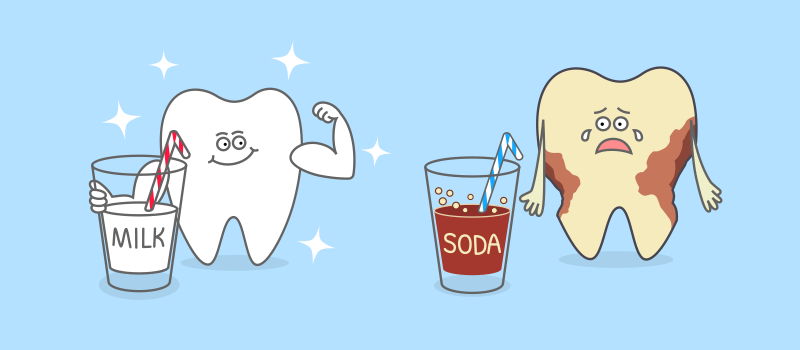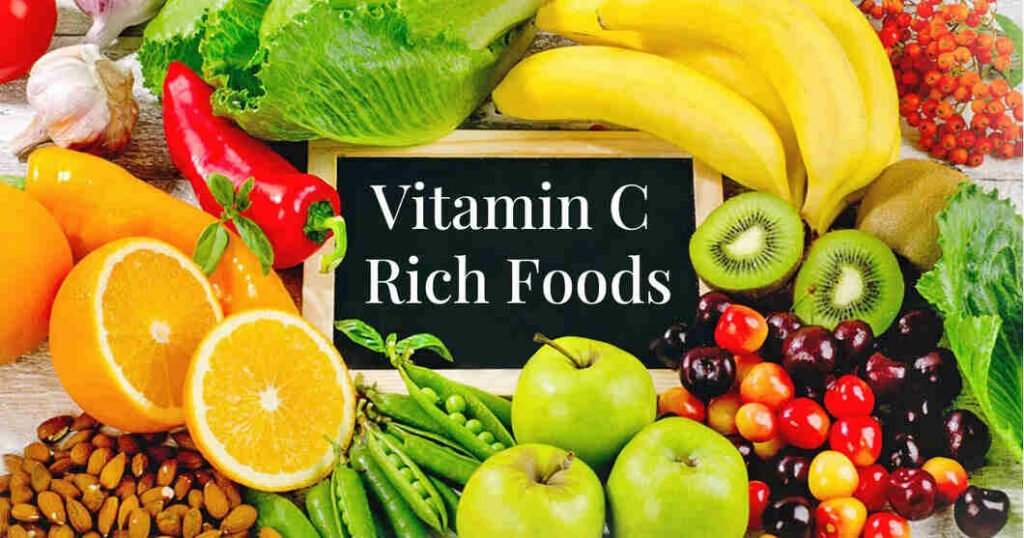Gum disease, also known as periodontal disease, affects millions of people worldwide. It is a chronic inflammatory condition that can result in the destruction of the gum tissue and bone that supports teeth. The condition can range from mild gingivitis to severe periodontitis, which can lead to tooth loss if left untreated. This article will explore the importance of diet in gum line, including the nutrients necessary for healthy gums, foods to avoid, and how to incorporate those nutrients into your daily diet. We will also discuss hydration and its impact on gum health, the role of probiotics in promoting healthy gums, and other tips for maintaining optimal oral health. By understanding the relationship between diet and gum health, you can make informed choices about what you eat to support your overall well-being.
Understanding Gum Disease
The progression of gum disease involves the accumulation of bacteria in the dental plaque, causing inflammation and destruction of the gingival tissue. Gum disease is a common health concern that affects millions of people globally. The condition is preventable with proper oral hygiene practices such as brushing twice daily, flossing, and regular dental check-ups.
Prevention strategies for gum disease include maintaining good oral hygiene habits such as brushing teeth twice daily using fluoride toothpaste and flossing at least once per day. Regular dental check-ups are also essential to identify early signs of gum disease before it progresses to severe stages. Common risk factors for developing gum disease include smoking, poor nutrition, stress, diabetes, hormonal changes during pregnancy or menopause, and certain medications.
Nutrition plays a critical role in maintaining healthy gums. Adequate intake of nutrients such as vitamin C, vitamin D, calcium, zinc and omega-3 fatty acids can help reduce inflammation and promote healing of damaged tissues. In summary, understanding gum disease prevention strategies and common risk factors is crucial in maintaining good oral health. Additionally, incorporating specific nutrients into one’s diet can help promote healthy gums and overall well-being without the need for invasive procedures or medication intervention.

Nutrients for Healthy Gums
Adequate consumption of specific nutrients has been shown to promote the maintenance of healthy periodontal tissues. It is important for individuals to adopt dietary habits that can help prevent and manage gum disease, a common oral health problem that affects millions of people globally. Nutrients such as vitamin C, vitamin D, calcium, and omega-3 fatty acids are essential in promoting gum health maintenance.
Vitamin C helps in collagen production which is vital to the structure of connective tissue in the gums. Studies have shown that individuals with low levels of vitamin C have a higher risk of developing gum disease compared to those with adequate levels. Vitamin D plays a crucial role in bone metabolism and immune function. Low levels of this nutrient have been linked to an increased risk for periodontal disease and tooth loss. Calcium is vital for the formation and maintenance of strong teeth and bones while Omega-3 fatty acids possess anti-inflammatory properties that can help reduce inflammation associated with gum disease.
https://gumlinehealer.com/food-and-nutrients-for-gum/
Incorporating these essential nutrients into one’s diet through whole foods such as citrus fruits, salmon, spinach, cheese, nuts and seeds can greatly improve oral health outcomes. Furthermore, maintaining good dietary habits by reducing sugary drinks or snacks intake can also contribute positively towards overall oral hygiene practices. In contrast, poor eating habits such as excessive consumption of sugar-laden food items may result in tooth decay leading to adverse effects on periodontal health; this will be discussed further in the subsequent section about ‘foods to avoid’.

Foods to Avoid
Fostering a healthy dietary pattern involves more than just consuming essential nutrients; avoiding certain food items is equally important in maintaining optimal periodontal health. Processed foods and sugary snacks are some of the most harmful items for gums, as they promote bacterial growth and plaque formation. Moreover, they can cause inflammation and lead to gum disease if consumed excessively.
Acidic beverages such as soda, energy drinks, and fruit juices can also be detrimental to gum health. The acid in these drinks erodes tooth enamel and damages gums over time. Additionally, alcohol consumption can cause dehydration and reduce saliva production, which increases the risk of gum infections.
In summary, maintaining healthy gums requires not only consuming nutrient-rich foods but also avoiding certain unhealthy items. Processed foods, sugary snacks, acidic beverages, and alcohol should be limited or eliminated from one’s diet to prevent gum disease. In the subsequent section about incorporating nutrients into your diet, we will explore some healthy options that can help support gum healing.

Incorporating Nutrients into Your Diet
Incorporating certain nutrients into your diet can help improve the health of your gums and overall oral health. Fruits and vegetables that are high in vitamin C, such as oranges, strawberries, and bell peppers, can promote gum healing by reducing inflammation. Foods rich in vitamin D like salmon, tuna, and egg yolks can also boost gum health by promoting calcium absorption for stronger teeth and bones. Additionally, sources of omega-3 fatty acids like flaxseeds, chia seeds, and fatty fish may reduce inflammation and support healthy immune function to prevent gum disease.
Fruits and Vegetables High in Vitamin C
Consuming fruits and vegetables that are rich in vitamin C can contribute significantly to improving oral health. This nutrient is crucial for the production of collagen, a protein that helps maintain the integrity of gums and teeth. Incorporating vitamin C into your diet can reduce inflammation and bleeding gums, preventing gum disease from progressing. Here are some examples of fruits and vegetables high in vitamin C:
- Citrus fruits such as oranges, grapefruits, lemons, and limes.
- Berries like strawberries, raspberries, blackberries contain more vitamin C than citrus fruits.
- Vegetables such as red peppers, broccoli, Brussels sprouts also have a significant amount of this nutrient.
- Kiwi fruit is an excellent source of vitamin C as well.
To maximize the benefits of consuming these foods rich in Vitamin C for oral health it’s advisable to consume them raw or lightly cooked. Juicing recipes are also effective ways to incorporate these nutrients into your diet. However, it’s essential to keep in mind that supplements should not replace whole foods but rather complement them. In addition to incorporating foods with high levels of Vitamin C into one’s diet plan by juicing recipes or taking best supplements , there are other food sources for maintaining healthy gums such as those rich in Vitamin D.

Foods Rich in Vitamin D
The sun’s rays are an abundant source of Vitamin D, making it a crucial nutrient for maintaining overall health. Vitamin D plays a significant role in strengthening bones and teeth by aiding in the absorption of calcium. Studies have shown that inadequate levels of Vitamin D can lead to gum disease, as well as other oral health issues. It is important to note that sun exposure should be done safely and in moderation to avoid skin damage from harmful UV rays.
For those who do not get enough sun exposure or are unable to absorb Vitamin D effectively through their diet, supplements may be necessary. However, it is essential to consult with a healthcare professional before taking any supplements. Over consumption of Vitamin D supplements can lead to adverse effects on the body, including kidney damage and high blood pressure. Therefore, it is crucial to strike a balance between getting adequate amounts of sunlight and incorporating safe supplementation practices.
Sources of omega-3 fatty acids play an important role in promoting healthy gums and reducing inflammation in the body.

Sources of Omega-3 Fatty Acids
Omega-3 fatty acids are found in a variety of food sources and can contribute to overall health by reducing inflammation in the body. These essential fatty acids cannot be produced by the body and must be obtained through diet or supplements. There are numerous benefits of omega 3, including improving heart health, reducing joint pain, and promoting brain function. Research has also shown that consuming adequate amounts of omega-3 fatty acids may help reduce gum disease by decreasing inflammation in the gums.
For those who follow a vegetarian or vegan diet, it may seem challenging to obtain enough omega-3s without consuming fish or fish oil supplements. However, there are several vegetarian sources of omega 3 available, including flaxseeds, chia seeds, hemp seeds, walnuts, and algae-based supplements. Incorporating these foods into your daily diet can help increase your intake of omega-3s and promote gum health.
Incorporating proper hydration habits is crucial for maintaining healthy gums.
Hydration and Its Impact on Gum Health
Maintaining adequate hydration levels is crucial for promoting healthy gum tissue and preventing various oral diseases. Water makes up a significant portion of our body, and it plays a vital role in carrying essential nutrients to different parts of the body, including the gums. The importance of water intake cannot be overstated when it comes to oral health. Staying hydrated ensures that saliva production is optimal, which helps protect the teeth and gums from harmful bacteria.
Hydration also has numerous benefits for gum health. One major benefit is that it helps prevent dry mouth, which can lead to bacterial buildup and dental decay over time. Additionally, drinking enough water can help flush out food particles from between the teeth and gums that may contribute to plaque buildup. Proper hydration also promotes blood flow to the gums, which helps them stay healthy by delivering oxygen and nutrients while removing waste products.
To ensure adequate hydration levels are maintained throughout the day, individuals should aim to drink at least eight cups of water per day or more depending on their physical activity level or climate they live in. Here’s a table showcasing some other sources of hydration:
| Beverage | Amount of Water (fl oz) |
|---|---|
| Green tea | 8 |
| Coconut water | 11 |
| Milk (skim or low-fat) | 8 |
| Sports drinks | 20 |
Incorporating these beverages into one’s daily routine can improve overall hydration levels while providing additional nutritional benefits for gum health.
Probiotics are another way individuals can maintain good gum health through diet changes.

The Role of Probiotics in Gum Health
Probiotics have emerged as a promising area of research for improving oral health by promoting the growth of beneficial bacteria in the mouth. The oral microbiome is a complex ecosystem that includes both harmful and beneficial microorganisms, and maintaining a balance between them is crucial for good oral health. Probiotic supplementation has been shown to promote this balance by increasing the number of beneficial bacteria and inhibiting the growth of harmful ones.
One study found that individuals who consumed probiotic-containing milk had decreased levels of harmful bacteria in their mouths compared to those who didn’t consume it. Another study showed that probiotics could reduce inflammation in the gums, which is an important factor in preventing gum disease. However, it’s important to note that more research is needed to fully understand how probiotics can impact gum health.
Incorporating probiotic-rich foods like yogurt, kefir, and fermented vegetables into your diet may be a simple way to support oral microbiome balance. Additionally, taking a probiotic supplement specifically formulated for oral health may also be helpful. Incorporating these strategies along with other tips for promoting healthy gums can help you maintain optimal oral health.
Other Tips for Promoting Healthy Gums
To further promote optimal oral health, it may be beneficial to incorporate regular dental check-ups, proper brushing and flossing techniques, and reducing stress levels through relaxation techniques such as yoga or meditation. Maintaining good oral hygiene is crucial in promoting healthy gums. Brushing teeth twice a day for two minutes using fluoride toothpaste helps prevent plaque buildup and gum disease. Flossing daily removes food particles from between teeth that cannot be reached by brushing alone.
Lifestyle changes can also play an important role in maintaining healthy gums. Smoking has been linked to periodontal disease, so quitting smoking or never starting can help prevent gum problems. Additionally, a diet high in sugar and processed foods can contribute to inflammation in the body which may lead to gum disease. Eating a balanced diet with plenty of fruits and vegetables can provide necessary nutrients for gum health.
While supplements and herbal remedies are not substitutes for good oral hygiene practices, they may have benefits when used in conjunction with proper care. Coenzyme Q10 (CoQ10), vitamin C, and omega-3 fatty acids have all been shown to potentially improve gum health when taken as supplements. Herbal remedies such as green tea extract and aloe vera gel have also been studied for their potential anti-inflammatory effects on the gums.
Incorporating these oral hygiene practices along with lifestyle changes and potential supplement use can aid in promoting healthy gums. It is important to consult with a healthcare professional before beginning any new supplementation or herbal remedy regimen.
Further Entities
- https://en.wikipedia.org/wiki/Health_professional
- https://www.nidcr.nih.gov/health-info/gum-disease
- https://www.health.harvard.edu/topics/dental-health
Frequently Asked Questions
Can gum disease be reversed completely through diet alone?
It is not entirely possible to reverse gum disease through diet alone, but incorporating certain foods into a healthy eating plan can promote gum healing and prevent further damage. Gum healing foods that are high in vitamin C, such as oranges and strawberries, can help strengthen gum tissue and reduce inflammation. Additionally, dietary changes like reducing sugar intake and consuming more fiber-rich fruits and vegetables can improve overall oral health. However, it is important to note that professional dental treatment may be necessary for severe cases of gum disease. It is always best to consult with a dentist or healthcare provider before making any significant dietary changes with the intent of improving oral health.
Are there any specific herbs or supplements that can help heal gum disease?
There are several herbs and supplements that have been shown to help heal gum disease. Natural remedies such as aloe vera, tea tree oil, and licorice root have anti-inflammatory properties that can reduce swelling and irritation in the gums. Coenzyme Q10 is another supplement that has been found to improve gum health by reducing inflammation and promoting tissue repair. Vitamin C is also important for gum health, as it helps strengthen the connective tissues in the gums. While these natural remedies may be effective in treating mild cases of gum disease, it’s important to consult with a dentist or healthcare provider before starting any new supplements or herbal treatments.
How often should I be brushing and flossing my teeth for optimal gum health?
Brushing and flossing are crucial for maintaining optimal gum health. The American Dental Association recommends brushing at least twice a day with fluoride toothpaste and flossing once a day to remove plaque and food particles that can lead to gum disease. However, depending on individual circumstances such as age, oral health status, and risk factors for gum disease, some individuals may benefit from more frequent brushing and flossing. It is important to use proper technique when brushing and flossing to ensure all areas of the mouth are adequately cleaned. A dental professional can provide guidance on appropriate brushing and flossing techniques as well as personalized recommendations for frequency based on individual needs. Consistency in maintaining good oral hygiene practices is key for preventing gum disease and promoting healthy gums.
Can drinking alcohol negatively affect gum health?
Alcohol consumption has been linked to a number of negative health effects, including damage to gum health. Drinking alcohol can lead to dehydration and decreased saliva production, which can contribute to the growth of harmful bacteria in the mouth. Additionally, alcohol is known to increase inflammation throughout the body, which can exacerbate existing gum disease or contribute to its development. To promote healthy gums, it’s important to limit alcohol consumption and consider dietary modifications that support oral health. This may include consuming foods rich in vitamins and minerals like calcium, vitamin C, and folic acid, as well as avoiding sugary or acidic foods that can erode tooth enamel and irritate the gums. By adopting a balanced diet and reducing alcohol intake, individuals can help protect their oral health and prevent gum disease from progressing.
Is there a link between stress and gum disease?
Stress has been linked to a variety of health problems, including gum disease. Chronic stress can lead to inflammation throughout the body, and this inflammation can affect the oral microbiome. The oral microbiome plays a crucial role in maintaining healthy gums by keeping harmful bacteria at bay. When this delicate balance is disrupted, it can lead to gum disease. Studies have found that individuals who experience high levels of stress are more likely to develop gum disease than those who do not. While there are many factors that contribute to gum disease, managing stress levels may be an important step in preventing or treating this condition.
Conclusion
Gum disease is a common condition that affects many people worldwide. It can cause discomfort, pain, and even lead to tooth loss if left untreated. One of the ways to prevent and treat gum disease is through proper nutrition. A diet rich in nutrients can help strengthen gums and support overall oral health.
Consuming foods that are high in vitamin C, calcium, magnesium, and omega-3 fatty acids have been shown to be beneficial for gum health. On the other hand, limiting sugary and acidic foods can help reduce the risk of developing gum disease. Drinking enough water also plays a critical role in keeping gums healthy since dehydration can lead to dry mouth which increases the risk of gum disease.
Probiotics have also been found to improve gum health by reducing inflammation and promoting healthy bacteria in the mouth. In addition to these dietary changes, maintaining good oral hygiene practices such as brushing twice a day, flossing regularly, and visiting your dentist regularly will significantly impact your overall oral health.
In conclusion, maintaining a well-balanced importance of diet in gum line health and preventing potential issues.. The intake of vitamins like vitamin C that aid collagen synthesis helps build better gums while minerals like calcium promote strong bones around teeth roots. Avoidance of sugars reduces plaque formation hence lessening gingivitis risks while probiotics maintain good bacterial balance inhibiting bad bacteria growth responsible for infections leading to periodontal diseases. Lastly hydration promotes optimal saliva production ensuring better cleaning action for teeth’s surfaces reducing food particles accumulation leading to caries hence healthier gums and teeths overall wellbeing , which ultimately contributes to a better quality of life and overall health. Therefore, it is crucial to maintain proper hydration levels to support oral health and prevent oral diseases.




